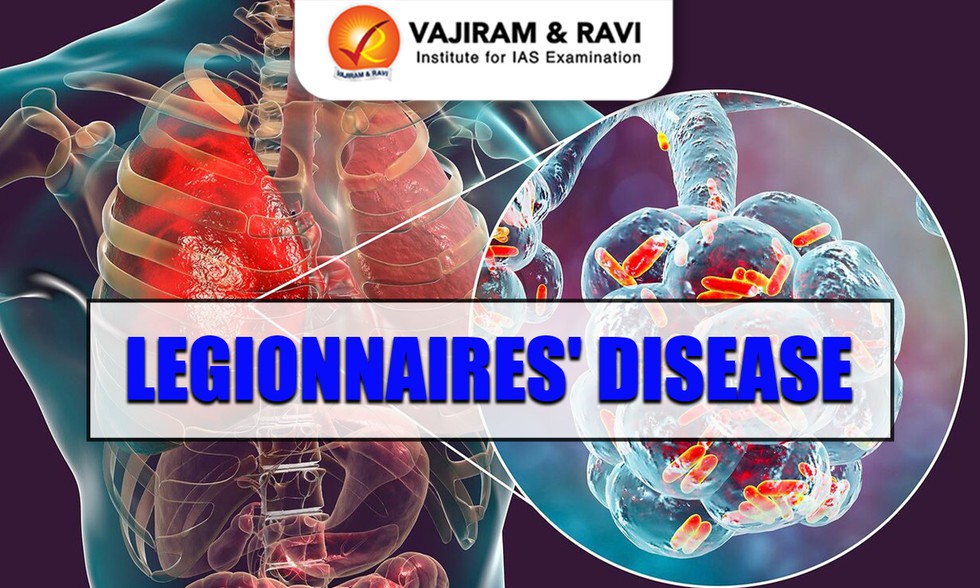About Legionnaires' Disease:
- It is a severe form of a lung infection called pneumonia.
- It is caused by a bacterium known as legionella.
- Transmission:
- Legionella is found naturally in freshwater, such as lakes and rivers. It can also be found in soil.
- Most people who catch Legionnaires' disease breathe in the bacteria from water or soil.
- You usually can't get infected by drinking water that contains the bacteria unless you aspirate it (accidentally breathe the water into your lungs).
- It is not contagious, meaning it is not spread from person to person.
- Older adults, people with weakened immune systems, and people who smoke have a higher risk of getting Legionnaires' disease.
- Symptoms:
- The main symptoms are fever, chills, headache, malaise, and muscle pain (myalgia).
- Untreated Legionnaires' disease can kill.
- Treatment:
- Treating right away with antibiotics most often cures Legionnaires' disease.
- But some people still have problems after treatment.
